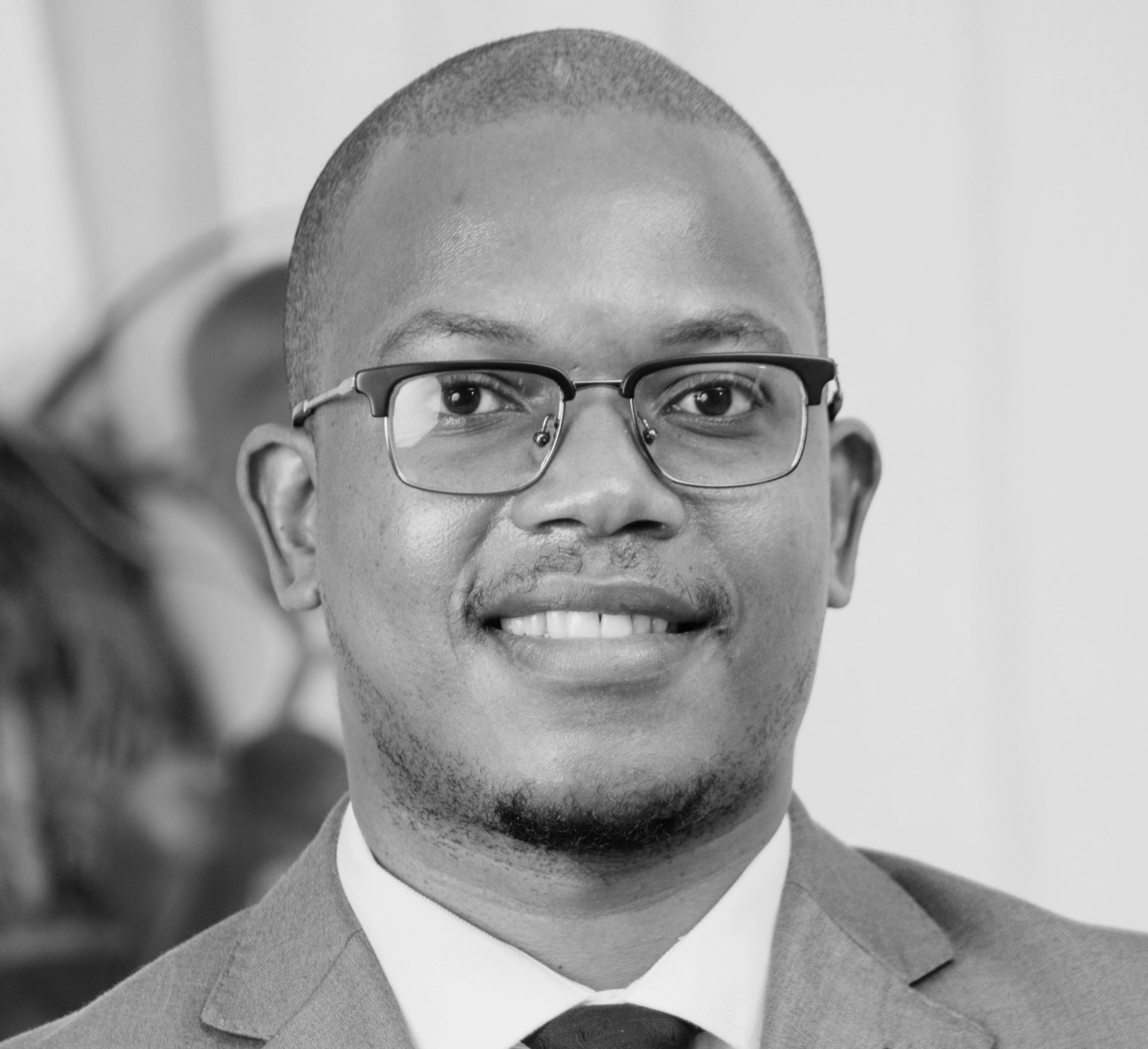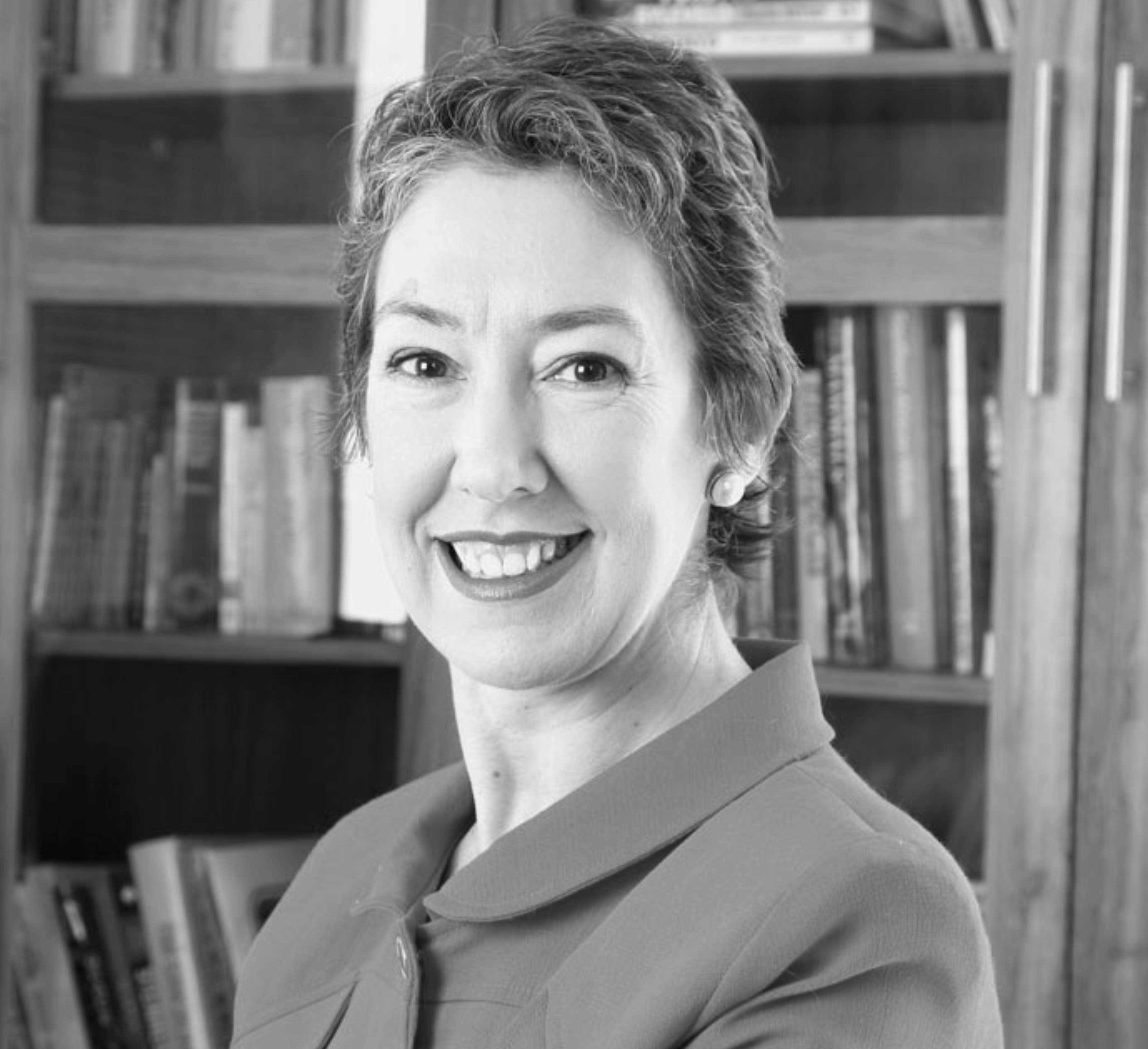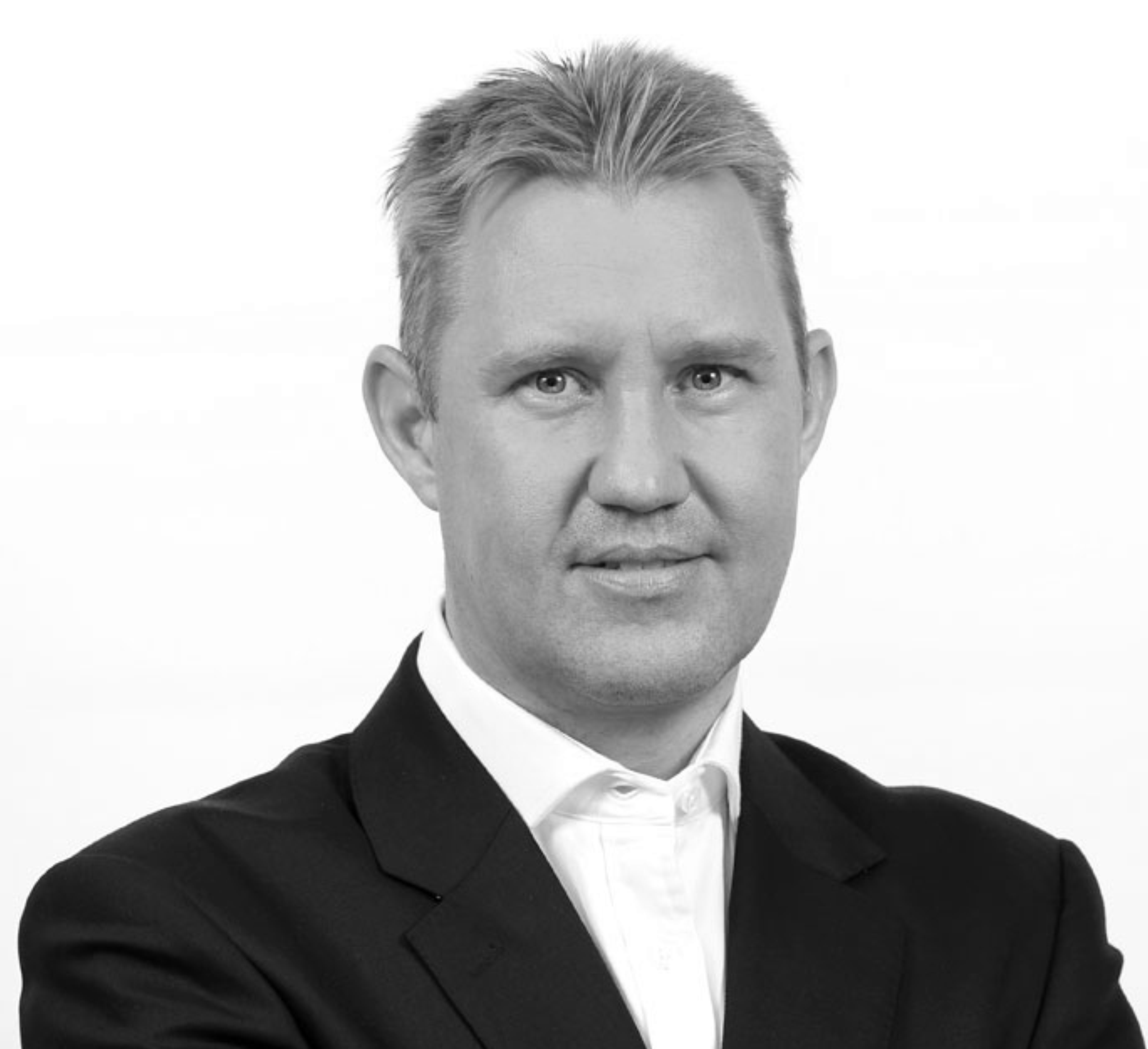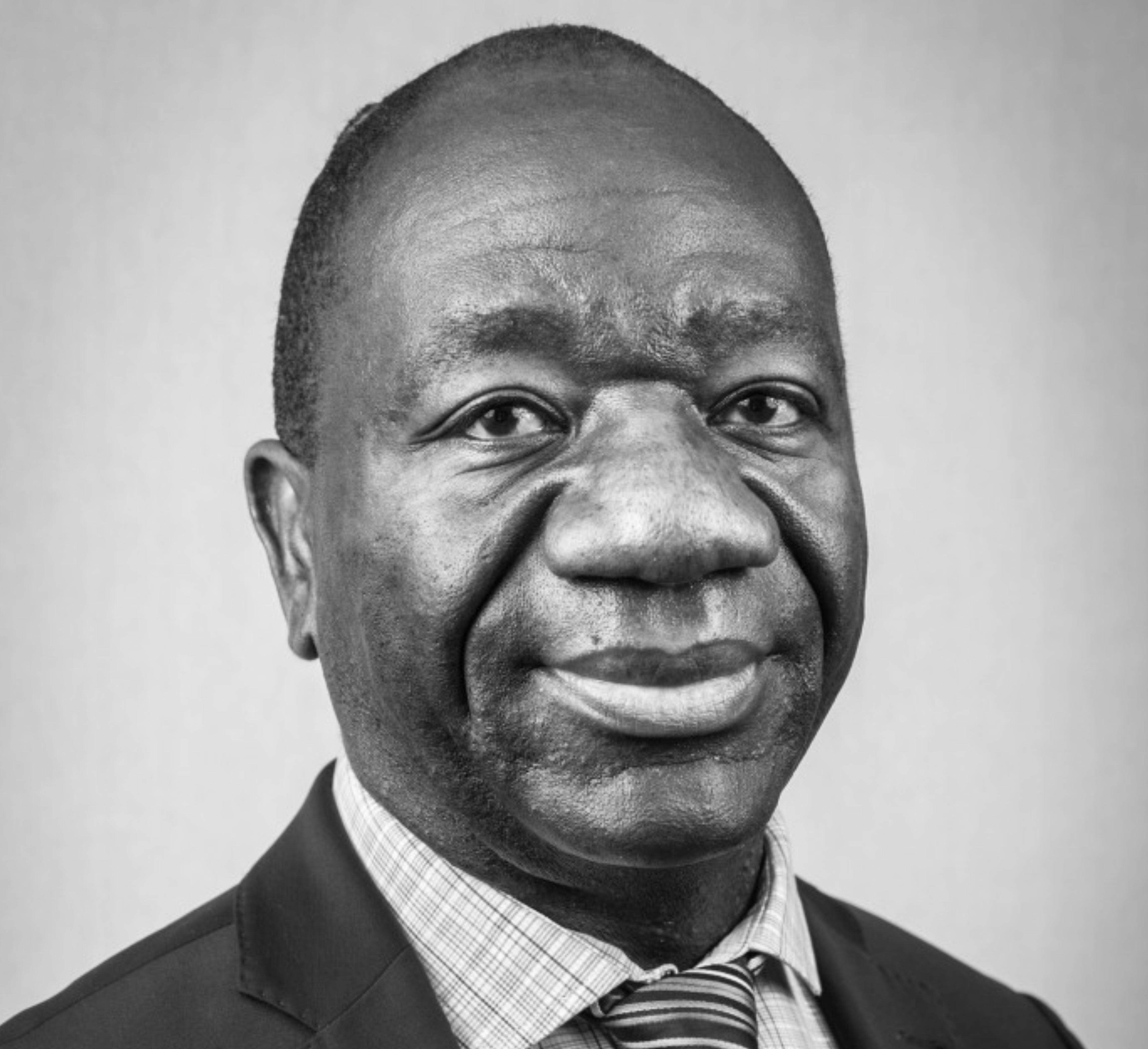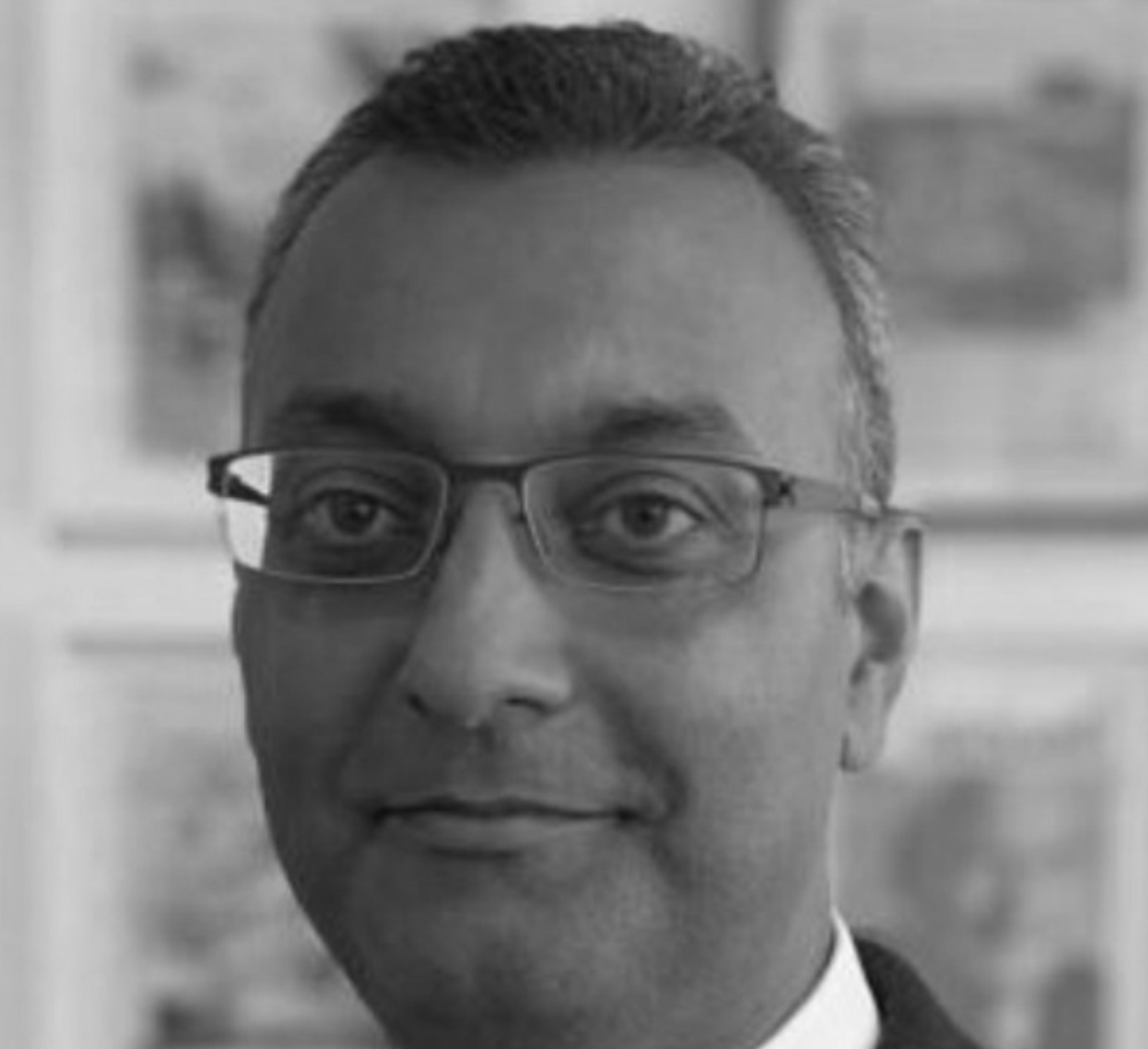139: Raymond Chinyani
A Career Journey to the Heart of Africa
Initially expecting to work in the Congo for a year, Raymond Chinyani fell in love with the culture and lifestyle of Kinshasa, where he has been head of finance at Bensiwe for the past six years.

CIARAN RYAN: Today’s podcast is sponsored by Draftworx, which provides automated drafting and working paper financial software to more than 8000 accounting and auditing firms and corporations. CFO Talks is a brand of the South African Institute of Business Accountants. I’m very happy today to welcome to CFO Talks, Raymond Chinyani, who is head of finance at Bensizwe Group based in the Democratic Republic of Congo and South Africa, and offers HR solutions from recruitment to payroll, as well as project management, IT and market research. He’s been with Bensizwe since 2015 and before that, he was senior finance administrator for the CTU Group, and before that he was an audit associate at OK Zimbabwe. He’s also a member of ACCA, CIMA, FMVA, which is Financial Modeling and Valuation Analyst. I don’t know if that’s an organisation but, Raymond, you’re clarify that for us in a minute. That’s a pretty well-rounded CV, you’re also busy with an MBA through Warwick University in the UK. Let’s first of all formally welcome you, Raymond, where are you talking to us from? Are you in Johannesburg, where are you?
RAYMOND CHINYANI: Thank you very much for the invite to join you on the show. I’m calling in from Kinshasa in the DRC. That’s where I am currently based, with all this Covid it is difficult to move, so I am staying put in Congo now.
CIARAN RYAN: So your head office for Bensizwe is in Congo?
RAYMOND CHINYANI: The main head office is in Pretoria, South Africa, but the regional office in Central Africa here is in Kinshasa.
CIARAN RYAN: Have you been in Kinshasa through the lockdown or was that a recent move?
RAYMOND CHINYANI: I used to do Kinshasa, South Africa, Kinshasa, South Africa, travelling in between the two but then with all the restrictions it’s always safer to stay put in one place if you can. So I decided to stay here and manage operations remotely.
CIARAN RYAN: Have you been to see the Congo River?
RAYMOND CHINYANI: Oh yes, that’s a gigantic, massive river, it’s really amazing.
CIARAN RYAN: Kinshasa is quite a huge, rambling city as well, I’ve been there a few times.
RAYMOND CHINYANI: Kinshasa is a really interesting city with lots of potential, I love this city. it’s probably about 16 million inhabitants in a place that’s probably the size of Pretoria. So in terms of business, it does make sense to venture into or expand into that type of territory and market. So it’s pretty interesting.
CIARAN RYAN: Tell us about the MBA, you chose Warwick University for doing an MBA, and I guess there’s a follow-on question from that, why did you decide to do an MBA?
RAYMOND CHINYANI: I think before I delve into that, you asked previously about the FMVA, which is the Financial Modeling and Valuation Analyst, this is a new certification that was introduced recently. I think there was a deep need for most of the finance guys, now it’s more like a prerequisite more than anything else. In terms of financial modeling, it is the in thing now to supplement all the technical knowledge and qualifications that you would have done. Most folks realise that on top of your CA, on top of your CPA, you need to supplement with financial modeling. I decided also to jump onto the bandwagon and up my skills to be competitive. Then to answer your next question, why did I choose Warwick University, I have always wanted to do an MBA and I initially wanted to do it locally with our local universities. But then I thought I want something that’s got more of a global flare. So I looked at the big institutions, Harvard, Stanford, but my constraint with those institutions was I couldn’t stop work and study full-time because that’s another financial commitment and so on. So I looked for the distance learning MBAs globally, which ones were at the top, and obviously Warwick is ranked as number one distance learning MBA in the world by the Financial Times, I think there’s The Economist and a couple of other rating agencies. So I went straight for that and also the modules that they offer include strategy, innovation, entrepreneurship. In actual fact, they do have an entrepreneurship hub, where if you have an idea that you think is a superb idea, they do, as a university, fund startups. So those are some of the contributing factors that I looked at and then the other part also is the diverse network, they say your network is your net worth. So with that diverse cohort of Warwick global representation, we’ve got a couple of South African guys who are also in my class. One guy is a [unclear] and the other guy is a CEO for a pharmaceutical company. So that’s diverse cohort, for me, was very lucrative, so that’s why I went for Warwick.
Great demand for outsourced HR services in Congo
CIARAN RYAN: Tell us about Bensizwe, I see from the webpage that there’s a strong presence in the DRC, and you’ve already explained that you’re there at the moment, but your head office is in Pretoria. How did it come into being and how did you end up there?
RAYMOND CHINYANI: I think Bensizwe, for me, was a brainchild of entrepreneurship. It was started by Mandla Msimang, who is also a South African resident, after identifying the opportunity in Central Africa. That’s the funny thing, Bensizwe started off in the Congo first, before South Africa, so that’s interesting. So he started it after identifying that there’s a deep need for HR services in Central Africa.
CIARAN RYAN: Just pause on that, it was started by Mandla, who is South African, but it was started in the DRC. Just give us a bit of background to that, how did that happen?
RAYMOND CHINYANI: He was working in the Congo, in the same way as I am working here and he realized, wait a minute, I think there is an opportunity here in this particular sphere, and then he resigned and started the company while he was still in the Congo. So he was working for a telecoms company here, then he resigned and he started Bensizwe. It grew and in the Congo alone we’ve got 1600 employees, so that’s how tremendous the growth has been over the years. Now we also have Namibia and South Africa, hopefully we’ll keep expanding into the rest of SADC and the region.
CIARAN RYAN: That’s astonishing, 1600 employees, is that across the whole group or just in the DRC?
RAYMOND CHINYANI: Just in the DRC only.
CIARAN RYAN: And in South Africa, how many people?
RAYMOND CHINYANI: In South Africa we are relatively small, I guess because of the competition, so we are relatively small, and I think our staff complement is just above 23 now.
CIARAN RYAN: What a fascinating story. It leads into my next question, I find it interesting that outsourced HR services appear to be in hot demand in the DRC, is that because there isn’t much competition there, what’s the basis behind that?
RAYMOND CHINYANI: Number one I think it is because of the stringent labour laws here, the labour laws in Congo are probably one of the most stringent in the world, according to my perception. So it then becomes expensive for companies to manage all of that administrative compliance, which then creates a space for outsourcing companies to step in. In terms of how we set up our company as well, there is a lot of competition, but when you are offering a service and a product that is a value add to a client. So we’ve got, for example, a dedicated legal department that sits and analyses contracts. So before any move is made, they have to scrutinise all of that. That has led us to become a chosen brand amongst…we’re the leaders in Congo, we’ve got most of the telecom companies, the airlines, mining companies, hospitality companies, so that has made us a brand of choice when it comes to HR in Congo.
CIARAN RYAN: That is a fascinating story. Do you have representation across Congo, from Kisangani to Lubumbashi and so on?
RAYMOND CHINYANI: I’m fascinated that you know those areas. Yes, we do have representation, that’s another part of our strongpoint, in all the provinces. Like you said, we’ve got offices in Lubumbashi, we’ve got offices in the eastern part in Goma, we’ve got Kivu, also in central Congo in Kimpese and here in Kinshasa. So we have a footprint throughout Congo, which, as you know, in terms of the geographical spread across the country, Congo is a massive country, which also gives us a competitive advantage in terms of our clients because we cover the entire country.
CIARAN RYAN: Tell us about yourself, I see that you are Zimbabwean, you obviously grew up and went to school there and you were an audit associate with OK Zimbabwe, which those of us who also grew up in Zimbabwe know very well. So I’m just keen to hear about your journey, where did that start?
RAYMOND CHINYANI: Yes, I grew up in Harare, Zimbabwe, I went to Cranborne Boys High School, I’ve got very fond memories of my high school days. We had a very good upbringing, I come from a big family of five, my mom and dad are still in Harare and my sisters are in Australia. After I finished high school, I joined OK Zimbabwe and did auditing there and that was before things were not going well in Zimbabwe, and then I had to make a choice, do I stay or what do I do with my life. I think because I really wanted to make something out of my life, I had to move to a place where I could find better opportunities. So I went to South Africa for university and then I joined CTU Group, I worked there for a number of years. I studied at Unisa and I have got two degrees from Unisa, Batchelor of Accounting Science and then I did my post-grad in management accounting. So that’s how I landed up in South Africa before I moved to Congo.
CIARAN RYAN: Okay and then how you connected with Bensizwe, was that in the normal way, did you apply for a position there or how did that happen?
RAYMOND CHINYANI: That was actually a very fascinating story of how I landed up here, people always ask me that. I was happy in South Africa, to me honest, I was happy with my job, happy with my company, happy with everything. One of my friends saw an advert for an opportunity in the Congo and he said to me, you speak French, you did French in high school, so I thought of you. I thought, okay, and I applied for the job, not really because I was keen or passionate to move out of South Africa, but I applied. They called me for the first interview, it went well, then a second interview, things were happening, then I went for a third interview and got the job. So I thought I will go and try it for one year and then I will be back in South Africa. So I came to the Congo and, like I said, I enjoy the culture, the people, I fell in love with the whole atmosphere here and six years down the line I am still here.
CIARAN RYAN: You’re still there, and do you have a family with you?
RAYMOND CHINYANI: Yes, I am married now, we haven’t started the kids journey yet, I think we just want to explore where are we in terms of us as a family, where do we want to settle permanently. This travelling up I down I think at some point has to stop.
CIARAN RYAN: Are you married to a Congolese?
RAYMOND CHINYANI: My wife is Zimbabwean, she grew up in South Africa and she also has a similar story to mine. She left Zimbabwe in primary school and she did the rest of her schooling and university in South Africa.
CIARAN RYAN: Does she like it there as well in Kinshasa?
RAYMOND CHINYANI: Yes, she likes the Kinshasa food, the French cuisine, so she’s settling in pretty well and she’s enjoying the French accents.
A heart set on auditing from a young age
CIARAN RYAN: Fascinating. Tell us what drew you to accounting, was this something that you thought when you were in primary school, I’m going to be an accountant when I grow up or was it a little bit more complex and random than that?
RAYMOND CHINYANI: I remember when I was in grade three and my teacher asked me, what do you want to do when you grow up. I said I wanted to be an auditor. I was the odd one out, everyone else was saying doctor, teacher, sportsperson. She was quite amazed and fascinated and she said but why auditing. So where that came from was my father’s friend was a chartered accountant and obviously, back in the day, he was the better person in the community, driving the fanciest cars, living in the biggest house, throwing the best parties. So I said I also want to be that, so from an early age that is where I picked it up from and then he helped me in terms of doing my research. So I went to almost all the audit firms when I was in high school to see what is auditing, what does it entail, then I would spend a day at EY, spend a day at PwC, I went to Deloitte, I remember I went to KPMG. Then I decided that besides all the benefits that come with that, I think it’s something I enjoy. So I never had issues with what do you want to do when I grow up. Straight from high school I knew exactly what I wanted to do and here I am.
CIARAN RYAN: Getting to the nub of the issue, you also came through a fairly non-conventional route, you’re a member of ACCA, CIMA and FMVA, I really need to look into FMVA, I was not aware of it but it does sound like a fascinating route to go. Are there some things that you only learn from experience, things that are not taught in accounting schools, and disciplines that I am sure you have to employ when you’re running a team of 1600 people across Congo and you’ve got all of the logistics problems of doing that, so there’s team management, strategy and communication. Where does one pick up those skills?
RAYMOND CHINYANI: Just to go back a bit, initially when I finished my first degree, I had to be registered for CTA because I think I was already well-established, so for me to go back into being an articled clerk again, I didn’t want to go that route because I had already made up my mind that I wanted to go international. So I think ACCA and CIMA were more lucrative options for me in terms of breaking out into the international sphere. So halfway through I dropped CTA and switched to ACCA. It was quite an interesting and fascinating journey, so that’s how I ended up switching. To answer your last question, the things that I learn in practice, which was not taught in accounting school, I think there is a lot. Part of the reason why I had to do an MBA is because you realise that most of your accounting qualifications are too technical. So there are things like people management that you don’t learn in accounting school, strategy, leadership, how to handle your team, for example, those things you have to learn in practice or if you go to a business school. Like I said, the MBA bridges that gap between being too technical and being a strategic leader. I’m happy with that journey so far.
CIARAN RYAN: Those are the kinds of disciplines that in discussions with a lot of CFOs and senior financial people, I hear this repeatedly, this is not something that you’re going to learn in schools, you have to pick this up the hard way. One of the reasons why the South African Institute of Business Accountants registered this designation called CFO (SA) is for that, it’s basically in recognition of these disciplines. There’s a lot of research that’s been done overseas about what those disciplines are and it is things like communication, strategy and team management that really emphasise more the softer skills. You can learn the technical part of accounting very easily in accounting schools but it’s those softer skills that are the more difficult part I think in your toolkit. Would you agree with that?
RAYMOND CHINYANI: Yes, absolutely, as you go up the ladder you realise that it becomes more technical because then you’ve got people who are doing it for you. You’re not doing cash flow, somebody brings the cash flow to you, you’re not doing most of these technical tasks, they are brought to you for evaluation and decision-making. Like you said, it then becomes more of the softer skills as you climb up the ladder into a CFO position, and if not picked up well, then, as you say, institutions like SAIBA come into play to inculcate those softer skills. So those are prerequisites if you want to go far with your career.
‘One of the biggest challenges that I realised I was in the deep end, was coming to Congo.’
CIARAN RYAN: Tell us about some of the more challenging things you’ve had to do in your professional life.
RAYMOND CHINYANI: I think one of the biggest challenges that I realised I was in the deep end, was coming to Congo. You’re all fascinated, I’m moving to another country, I’m going to speak French, but when I landed here then you realise it’s a totally different environment. Number one, the accounting framework systems are different, they don’t use IFRS, they use OHADA, which is a French system. So already from there that’s challenge number one. Number two was that I had to face the language, yes I had a basic understanding of French because I did French in high school but now you are in the deep side of things, now I had to attend French meetings, so that was a huge challenge. Then, obviously, the culture, the anglophone and the francophone, it’s totally different in terms of that whole culture and way of doing business. I think the first three months for me was a lot of learning, unlearning old things and trying to get into the new environment.
CIARAN RYAN: Okay, moving country, new language, I’m sure we all in Zimbabwe learnt French in high school but I’m sure it’s not at the level you need in Kinshasa, so you have to brush up on that when you get there because that’s your working language, right?
RAYMOND CHINYANI: That’s correct.
CIARAN RYAN: Okay and then managing a fairly large team across a distance. That’s also not that easy, I would imagine that would have posed some challenges too.
RAYMOND CHINYANI: Yes, it’s definitely a big challenge. I think one of the things, as you mentioned earlier on about softer skills, is to ensure that we develop those channels of communication, number one, and also to ensure that your systems are in place. Your systems run things, even when you are sleeping, your systems are intact. So I think for me that is what really helped me because we had to re-establish our systems. So even now when I am not in one place, you know your systems are there, they’re working around the clock, so that obviously increasing your efficiency and your effectiveness. So that really has helped a lot.
CIARAN RYAN: Now, what do you do in your downtime, on the weekends, what goes on in Kinshasa?
RAYMOND CHINYANI: When I was in South Africa, I used to do more swimming and watching sports, but when I came here I changed a bit, I am more into running. So I run on average 150 kilometres per month. I love playing golf when I can. Then obviously also reading newsletters, the Wall Street Journal, the Financial Times, the local press, watching news on Al Jazeera, SABC. I love keeping updated with what’s happening around me in my environment, so that’s what I spend most of my time doing.
CIARAN RYAN: Okay, final question, are there any books that you would recommend, books that inspired you or entertained you?
RAYMOND CHINYANI: Yes, I love reading, I’ve got a huge collection of books, I try to read at least three books per quarter, which is not enough, but I think for now that’s what I can manage. Books that come to mind, one of my outstanding books, the first one is Who Moved My Cheese by Spencer Johnson, it’s a very small book but very profound. Then there’s Rich Dad’s Cashflow Quadrant: Guide to Financial Freedom by Robert Kiyosaki. I love most of Kiyosaki’s literature. Then there’s also The 7 Habits of Highly Effective People by Stephen Covey. But I would say my outstanding one is Cashflow Quadrant. Then my best book is Maximise the Moment by Bishop T.D. Jakes, it basically talks about every moment that happens in your life, there’s a purpose for it, and if you don’t maximise that moment…this conversation that we’re having now, even if we repeat it next year at the same time, same day, same month, it will not be the same. Maximise the Moment is probably one of the best books I have ever read.
CIARAN RYAN: So the key takeaway from that is making better use of your time.
RAYMOND CHINYANI: Yes, correct, making the best use of your time. Sometimes some opportunities you will not be able to get the very same opportunity, it comes once in your life, so you maximise it. Not just from a business perspective or a spiritual perspective but from a personal perspective as an individual. For example, during Covid, everyone is seeing the negatives but there are opportunities that are being created. Once you miss that opportunity, it will not happen again. They say that the fisherman knows that when it’s raining it’s the best time to use the nets, and when it’s still it’s the best time to use the fishing rod, so basically for a fisherman, anytime is the best time for fishing. Maximise the moment.
CIARAN RYAN: And Robert Kiyosaki has a magnificent way of communicating financial concepts. He has really helped me to understand and simplify things, in a way. Who Moved My Cheese, what was your key takeaway from that?
RAYMOND CHINYANI: It’s a very small book that summarises that sometimes in life we hold onto things that have already expired, we hold onto the good old days Instead of trying to diagnose issues and hiring consultants, if something is done it’s done, sometimes you have to learn to adapt to the new. Another way is we need to learn to unlearn certain things and learn new concepts in life and progress.
CIARAN RYAN: What a fascinating discussion, I think we’ll leave it at that, we could probably go on for another hour. But I really do want to get you back, I’m very keen to see how things go during the rest of the year. Let’s stay in touch and find out how things are doing in a few months’ time. Raymond Chinyani thank you very much for coming on and sharing your insights, your experience and your life story, which I also found very fascinating.
RAYMOND CHINYANI: Thank you very much for having me. I truly appreciate the time that you’ve taken to invite me and to spend time interviewing me. I would certainly love to be back, I really enjoyed the show. I would encourage everyone who’s listening to this podcast as well, there’s a great line up of speakers who have been interviewed before, and there are some very insightful nuggets to take away from that. So when you’ve got time, go onto CFO Talks and listen to some amazing speakers who have spoken previously. I really enjoy this show.
CIARAN RYAN: Well, we appreciate you giving a plug there for CFO Talks, Raymond. We want to have you back, it’s an unusual story, a very African story, and I can see that you really have chosen an unusual path in your life. So congratulations on that and I wish you the best for the rest of the year.
RAYMOND CHINYANI: Thank you very much, I truly appreciate it, and all the best to you too.

